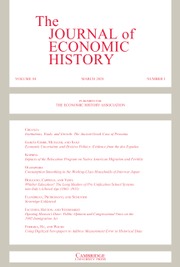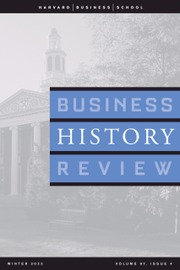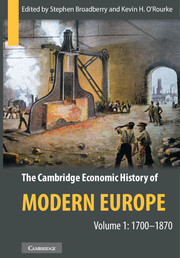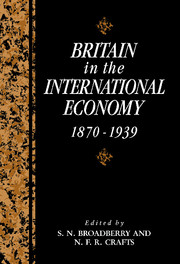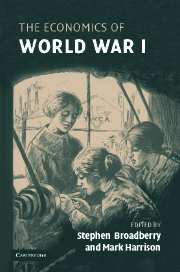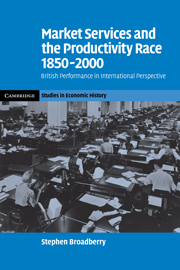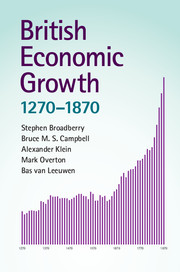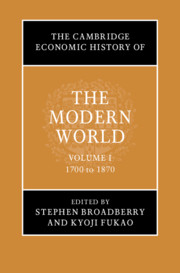The Cambridge Economic History of Modern Europe
Volume 2. 1870 to the Present
$58.99 (X)
Part of The Cambridge Economic History of Modern Europe
- Authors:
- Stephen Broadberry, University of Warwick
- Kevin H. O'Rourke, Trinity College, Dublin
- Date Published: July 2010
- availability: Available
- format: Paperback
- isbn: 9780521708395
$
58.99
(X)
Paperback
-
Unlike most existing textbooks on the economic history of modern Europe, which offer a country-by-country approach, The Cambridge Economic History of Modern Europe rethinks Europe’s economic history since 1700 as unified and pan-European, with the material organised by topic rather than by country. This second volume tracks Europe’s economic history through three major phases since 1870. The first phase was an age of globalization and of European economic and political dominance that lasted until First World War. The second, from 1914 to 1945, was one of war, deglobalization, and depression and the third was one of growing integration not only within Europe but also between Europe and the global economy. Leading authors offer comprehensive and accessible introductions to these patterns of globalization and deglobalization as well as to key themes in modern economic history such as economic growth, business cycles, sectoral developments, and population and living standards.
Read more- Sets the history of Europe's economy since 1870 within a comparative, pan-European framework with material organised by topic rather than by country
- Thematic structure and extensive tables and graphs make the subject accessible to both history and economics students
- Each chapter is written by an international team of historians and economists who are experts in their field
Awards
- A Choice Outstanding Academic Title 2011
Reviews & endorsements
"This ambitious and timely book is something quite new: a multi-authored undergraduate economic history text that is resolutely pan-European in its approach. The promiscuous presence of so many nation-states in virtually every chapter is very exciting. The outcome—an explicitly comparative and interdisciplinary analysis (with lots of elementary and intermediate economics) by three dozen of the best practitioners in the field—is a resounding success." -Cormac Ó Gráda, Professor of Economics, University College Dublin
See more reviews"Earlier economic histories of Europe were organized by country, which left the reader unable to see linkages between national economies or to appreciate how the several national economies differed or were similar. This very fine treatment is thus long overdue. The editors have organized a large, talented team of specialist scholars to create a coherent, up-to-date treatment. This work will quickly find a place in both teaching and research." -Timothy W. Guinnane, Philipp Golden Bartlett Professor of Economic History, Yale University
"The first unified economic history of Modern Europe provides a wide-angle perspective on an epic process of development that transcends national boundaries. Academics, students, policymakers and interested readers will turn to the essays by leading experts in the field for many years to come." -Alan M. Taylor, Professor of Economics, University of California, Davis
"I strongly recommend this book to readers. It is first a magnificent, unequalled introduction to European economic history. Furthermore it is a plea for the development of not only comparative but also quantitative economic history. It is finally a splendid synthesis exercise, which aims at presenting a cultured audience with the lessons drawn from advanced research in the field of historical economics and/or econometric history devoted to Europe from the eighteenth century to the present day, using clear and understandable terms." -EH.Net
"Fifteen papers provide a unified economic history of modern Europe from 1870 to the present." -Journal of Economic Literature
Customer reviews
Not yet reviewed
Be the first to review
Review was not posted due to profanity
×Product details
- Date Published: July 2010
- format: Paperback
- isbn: 9780521708395
- length: 484 pages
- dimensions: 246 x 173 x 22 mm
- weight: 0.94kg
- contains: 3 maps 102 tables
- availability: Available
Table of Contents
Introduction
Part I. Before the First World War:
1. Globalization, 1870–1914 Guillaume Daudin, Matthias Morys and Kevin H. O'Rourke
2. Aggregate growth, 1870–1914: growing at the production frontier Albert Carreras and Camilla Josephson
3. Sectoral developments, 1870–1914 Stephen Broadberry, Giovanni Federico and Alexander Klein
4. Business cycles, 1870–1914 Marc Flandreau, Juan Flores, Clemens Jobst and David Khoudour-Casteras
5. Population and living standards, 1870–1914 Carol Leonard and Jonas Ljungberg
Part II. The World Wars and the Interwar Period:
6. War and disintegration, 1914–50 Jari Eloranta and Mark Harrison
7. Business cycles and economic policy, 1914–45 Albrecht Ritschl and Tobias Straumann
8. Aggregate growth, 1913–50 Joan R. Roses and Nikolaus Wolf
9. Sectoral developments, 1914–45 Erik Buyst and Piotr Franaszek
10. Population and living standards, 1914–45 Robert Millward and Joerg Baten
Part III. From the Second World War to the Present:
11. The economic impact of European integration Barry Eichengreen and Andrea Boltho
12. Aggregate growth, 1950–2005 Nicholas Crafts and Gianni Toniolo
13. Sectoral developments, 1945–2000 Stefan Houpt, Pedro Lains and Lennart Schön
14. Business cycles and economic policy, 1945–2007 Stefano Battilossi, James Foreman-Peck and Gerhard Kling
15. Population and living standards, 1945–2005 Dudley Baines, Neil Cummins and Max-Stephan Schulze.Instructors have used or reviewed this title for the following courses
- Commodities in International History
- Europe in the Age of Extremes: the 20th Century
- Globalization and history
- Twentieth Century Europe
- Western Civilization ll
Sorry, this resource is locked
Please register or sign in to request access. If you are having problems accessing these resources please email [email protected]
Register Sign in» Proceed
You are now leaving the Cambridge University Press website. Your eBook purchase and download will be completed by our partner www.ebooks.com. Please see the permission section of the www.ebooks.com catalogue page for details of the print & copy limits on our eBooks.
Continue ×Are you sure you want to delete your account?
This cannot be undone.
Thank you for your feedback which will help us improve our service.
If you requested a response, we will make sure to get back to you shortly.
×
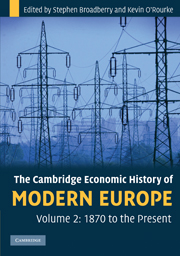
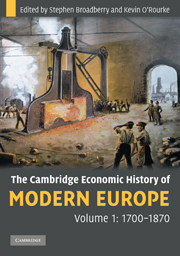
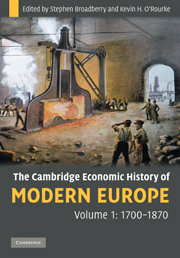
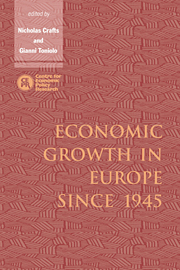
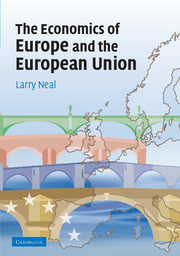
.jpg)
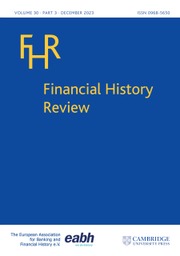
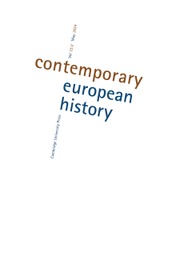
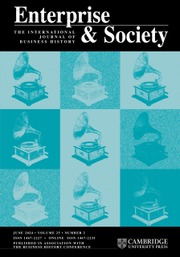
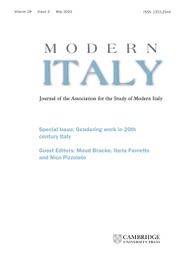
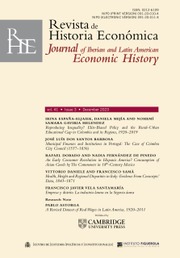
.jpg)
